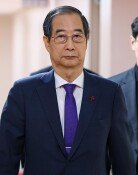More Vietnam War Dossiers Revealed
The Ministry of National Defense unveiled a total of 17 volumes (1,700 pages) of diplomatic dossiers pertaining to the Vietnam War yesterday.
These documents do not include the dossiers disclosed by the Ministry of Foreign Affairs and Trade at the end of August out of the diplomatic dossiers pertaining to the Vietnam War, and contain the process of deployment of Korean troops to the Vietnam War, dispatched soldiers salaries and the sharp conflict between Korea and the U.S. over whether Korea should join the NPT.
U.S. rejected Koreas request for wartime allowances-
In a report tilted, Treatment Improvement for Dispatched Soldiers, drawn up in April 1969, the National Defense Ministry recommended the government ask the U.S. for allowances that would give Korean soldiers in Vietnam combat pay equal to U.S. soldiers. At the time, the Soldier Salary Act stipulated that wartime allowances could only be given to soldiers engaged in a war in a state of national emergency. Thus, dispatched soldiers were not subject to wartime combat pay.
The Ministry of National Defense insisted, Allowances for dispatched soldiers are given as costs for maintaining the soldiers families livelihood, not given for any possible injuries during wartime. Given that the soldiers are engaged in a war for the national interest, although the soldiers are not engaged in a war of national emergency, the Korean government should demand the related allowances from the U.S.
The U.S. refused Koreas demand, saying that it could not shoulder the additional burden.
The level of dispatched soldiers salaries-
The allowances of Korean dispatched soldiers that the U.S. gave were almost equal to those of solders from the Philippines and Thailand, whose levels of national income were higher than Koreas at that time.
Korean and Philippine brigadier generals received $210 per month, and Korean and Philippine lieutenant colonels received $180 per month while ones from Thailand received $210 per month, and second lieutenants from the three countries all received $120 per month.
An official with the National Defense Ministry said, It has been reported that Philippine soldiers were given more than double compared to the allowances of Korean soldiers at the time. But it was revealed through these documents that the reason why the age-old speculation was circulated was because of the Philippines separate allowances to their deployed soldiers that were included in the total salaries. The age-old allegation that the Korean government appropriated the allowances for its dispatched soldiers was also dispelled.
Meanwhile, the total of salaries for dispatched Korean soldiers stood at $235.56 million during the period of deployment from 1965 to 1973. Of that amount, $195.11 million was remitted to home.
The establishment of a regional security body-
The late President Park Chung-hee mapped out the foundation of a regional security body that Korea, Japan, and Taiwan could take part in as key parties in a bid to protect Asia from the expansion of communist forces in the late-1960s. Park instructed, Negotiate with the U.S. over the establishment of the body by coming up with effective measures. If we see how the wind blows and not take an active attitude, we cannot set up a body capable of grappling with communism.
In response, related ministries drew up a tentative plan excluding Japan and Taiwan, but gave up on the plan because of its lack of reality.
Other revelations-
The Korean government was actively engaged in a diplomatic war against North Korea in the 1960s and 1970s. In annual meetings between foreign ministers from countries participating in the Vietnam War, then-Foreign Minister Choi Gyu-ha warned of a possible Northern invasion of the South, slamming a slew of activities committed by the North.
Meanwhile, the U.S. gave a total of about 6.5 billion won in compensation to Korean soldiers killed and injured during their deployment to Vietnam. For a total of 4,968 fallen soldiers, about 2.99 billion won were given, and for 8,004 injured soldiers, about 3.5 billion won were paid.
Broken down by military branch, the army (10,282 soldiers) received about 5.3 billion won, the marine corps (2,621 soldiers) received about 1.14 billion won, the navy (78 soldiers) received 37,050,000 won, and the air force (one soldier) received 457,600 won.
Sang-Ho Yun ysh1005@donga.com







